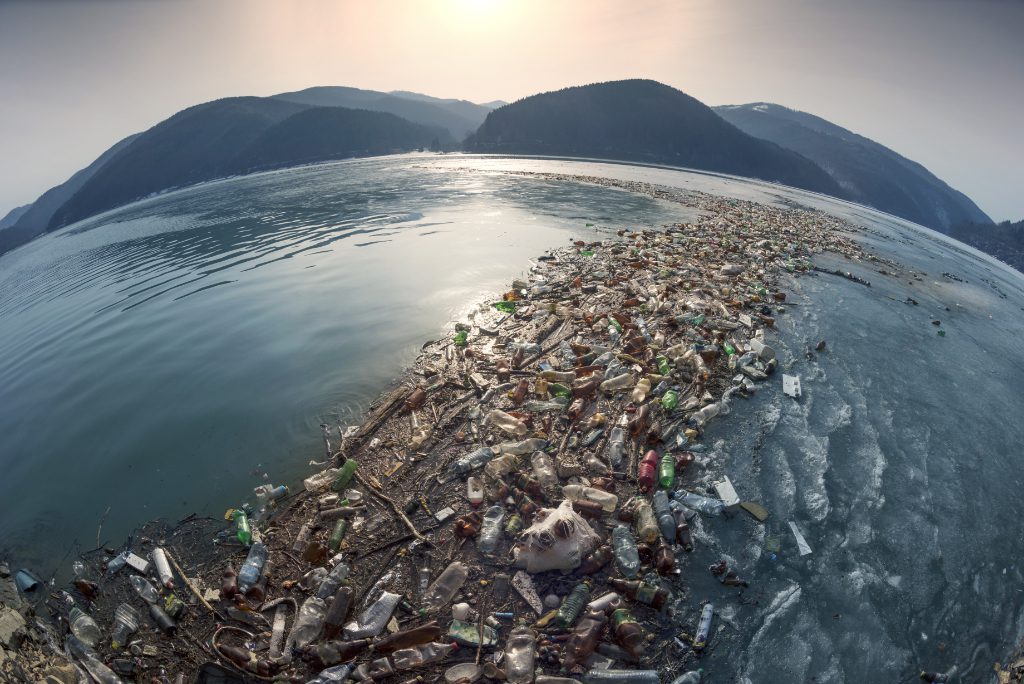The pandemic derailed this year’s push by the travel sector to trim its plastic waste. But some industry leaders see a sustainability pitch as a way to grab market share once demand rebounds.
On January 22, the United Nations World Tourism Organization launched a Global Tourism Plastics Initiative, with support from the Ellen MacArthur Foundation. Days later, Accor Hotels committed to getting rid of single-use plastics by 2022, as Skift reported.
The pandemic then short-circuited the campaign’s momentum.
Yet some eyes have begun to look again at plastic use. Younger travelers the environment is a high priority for them. A recent Censuswide survey found that many American, Australian, and British travelers were willing to spend a modest premium averaging $24 ($24 Australian or £17) for more for environmentally friendly accommodation. So some hostel owners see an opportunity to market to this audience by emphasizing their sustainability practices.
Hostelworld recently became the first online travel agency to join the Global Tourism Plastics Initiative. The company’s executives said many hostel operators are in the dark about best practices.
“About 80 percent of hostels are small businesses, and so the access to the sustainability information that a company like Marriott would have is very different within a hostel,” said Yale Varty, chief marketing officer for Hostelworld.
The UN effort offers online workshops. Topics include how organizations can recycle more, swap plastic for alternative materials, and reduce plastic use.
Hostelworld said it had alerted all hostels it works with. About 12,000 hostels are selling rooms through it currently, but it has alerted all 17,000 that advertised on its site and app before the pandemic.
The UN effort covers more than banning water bottles, Varty said.
“There’s the plastic used in all the F&B [food and beverage], such as cutlery,” Varty said. “There’s the plastic shampoo bottles and bathroom kits. There are the rubbish bags for cleaning and the plastic spray bottles that housekeepers use. You don’t realize until you think about it what’s behind the scenes.”
Hostelworld hopes by 2021 that about 500 hostels will commit to new operational practices, tracking progress with benchmarks over several years.
Early next year it will start putting badges in its online listings next to these hostels, letting consumers know about the sustainability commitments.
The booking agency said that the badges might help boost business in the selected properties. After they had booked hostels, the company surveyed 6,300 customers, asking if sustainable initiatives at a property would influence their future booking decisions. Three out of five customers said yes.
Hostelworld has taken actions for its own operations. It got rid of plastic water bottles within the offices, though most employees are working remotely at the moment. Before the crisis, the company reviewed its catering use and supply chain to choose partners that use recyclable and compostable packaging.
The pandemic has hurt the publicly-traded company. Executives told analysts in October that they expected the company’s revenue would be in the range of 16 percent to 18 percent of last year’s levels. Stay-at-home restrictions and swings in international currency have hurt bookings.
Hostelworld’s revenue shortfall points to a broader reality for the sector. Sustainability efforts may stay on the back burner at most hostels until the pandemic ebbs. Yet that could prove a mistake.
“The pandemic has a vaccine proposed, but plastics, garbage, and water pollution don’t have long-term solutions,” said Shoba Mohan, founder of boutique hotel brand Rare India during Skift Forum Asia last month. “For an industry that talks so much about sustainability, this is a time you’re being tested.’
For context, see Skift’s earlier articles this year: Travelers Frustrated by Plastic Alternatives Offered by Companies and Most Big Hotel Chains Are Now Committed on Plastics: Here’s the Problem With Promises.
Subscribe to Skift Pro to get unlimited access to stories like these
{{monthly_count}} of {{monthly_limit}} Free Stories Read
Subscribe NowAlready a member? Sign in here
Subscribe to Skift Pro to get unlimited access to stories like these
Your story count resets on {{monthly_reset}}
Already a member? Sign in here
Subscribe to Skift Pro to get unlimited access to stories like these
Already a member? Sign in here
